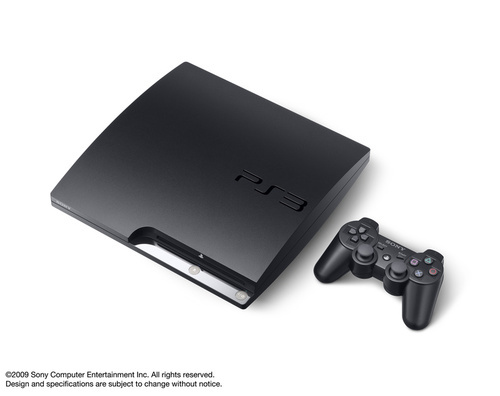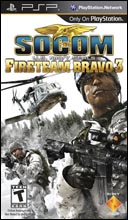Good piece by Ars Technica’s Nate Anderson explaining how the U.S. government was able to take down Megaupload, a company theoretically headquartered in Hong Kong: Megaupload wasn’t just some Hong Kong enterprise that “happened” to be used by US residents. The site had leased more than 1,000 servers in North America alone; 525 were at Carpathia Hosting and were located in Virginia. Between 2007 and 2010, Carpathia received $13 million from Megaupload. (Cogent Communications in the US supplied a few additional US servers and bandwidth.)
Tag Archives | piracy
Universal Music Sues Grooveshark for 100,000 Illegal Downloads

Spotify may be about to lose one of its most high-profile competitors, thanks to a copyright infringement lawsuit filed at the end of last week. Grooveshark, the streaming music service that recently relaunched itself with a new site, has been hit by a suit brought by Universal Music Group, which claims that the company has uploaded more than 100,000 songs without permission.
What’s unusual for this type of lawsuit, is that the UMG filing goes as far as naming those it suspects of illegally uploading material, including accusing Grooveshark CEO Samuel Tarantino of personally uploading at least 1,791 songs without permission. UMG is seeking maximum damages of up to $150,000 per infringement from Grooveshark, which could mean more than a $15 billion payout if the lawsuit is successful.
This isn’t the first time that Grooveshark has found itself facing allegations around issues of copyright; not only has UMG previously sued the company’s owner, Escape Media Group, for releasing access to the label’s pre-1972 catalog, but a group of Danish rights-holders filed sued against the company earlier this year, and Google pulled the company’s app from the Android market earlier this year over copyright worries.
The UMG lawsuit seeks a permanent injunction against Grooveshark, which could result in the service being forced to permanently shut down. The company’s VP of external affairs, Paul Geller, told CNET that the company hadn’t seen the complaint yet and would refrain from comment until it had.
[This post republished from Techland.]
No comments
Is Netflix The Solution To Movie Piracy?
![]() Ernesto over at TorrentFreak has an interesting premise: the meteoric rise of Netflix, and especially its streaming movie service, are having the surprising effect of tamping down on movie piracy here in the US. Impossible you say? Not so fast, it may actually make sense.
Ernesto over at TorrentFreak has an interesting premise: the meteoric rise of Netflix, and especially its streaming movie service, are having the surprising effect of tamping down on movie piracy here in the US. Impossible you say? Not so fast, it may actually make sense.
You could argue that movie piracy is much more popular for those movie watchers who don’t feel like paying an arm and a leg for a movie they’ve already seen, or is a couple years old. Just like an old car, these films lose their value. Thus piracy seems an attractive option since you don’t have to pay for it.
Enter Netflix. Its streaming movie service offers a lot of these films that these folks are looking for, and its price — only $7.99 a month — makes it quite attractive. Add to this the quality is likely much, much better in most cases than you’d ever get from a ripped movie, and more on-demand than downloading, and you’ve got a winner.
Ernesto says the site does have some evidence that the number of pirates out there in the US has decreased. With Netflix’s growth, one could easily argue that the site could be a contributor.
8 comments
Will Sony Go Old-School to Fight PS3 Piracy?
 As incredible as this rumor seems, I can’t resist: According to a “very reliable source,” Dutch website PS3-Sense reports that Sony will fight Playstation 3 piracy with serial codes.
As incredible as this rumor seems, I can’t resist: According to a “very reliable source,” Dutch website PS3-Sense reports that Sony will fight Playstation 3 piracy with serial codes.
That’s right, an old-school combination of letters and numbers. Players who buy new PS3 games will reportedly have to dig up a unique code — from where is not totally clear, but presumably a slip of paper inside the game box — and dial it in to verify that the copy is legit. Each code, the rumor says, will be valid for up to five authorizations.
4 comments
RIAA: Thou Shalt Not Mention P2P Software
 One little article by PCMag has done “immeasurable” harm to musicians, at least according to music industry executives.
One little article by PCMag has done “immeasurable” harm to musicians, at least according to music industry executives.
Ticked off by PCMag’s list of alternatives to Limewire — the file-sharing website that recently shut down after losing a copyright infringement lawsuit — members of the Recording Industry Association of America fired off an angry letter to Vivek Shah, chief executive of PCMag publisher Ziff Davis. The execs argue that PCMag is “slyly encouraging people to steal more music” by acknowledging the existence of other file-sharing websites, and asks that article be removed.
(The letter also blames PCMag for an article about the resurrection of Limewire, despite being written for PC World. Apparently the RIAA can’t tell the difference.)
Of course, PCMag isn’t backing down, and has no legal reason to do so. “It worries me that the music industry took this action, because it reeks of desperation,” Editor Lance Ulanoff writes. “… It’s time for these music execs to pull their collective heads out of the sand and fully acknowledge and accept all the ways their industry has changed.”
4 comments
Hacker Breaks Into The Pirate Bay to Prove a Point
 If you’re using The Pirate Bay, the news that a Argentine hacker was able to easily hack into the site and get the contact information of four million users should be a little unsettling. Hacker CH Russo with two partners were able to exploit vulnerabilities in the SQL database software the site uses to compile the data.
If you’re using The Pirate Bay, the news that a Argentine hacker was able to easily hack into the site and get the contact information of four million users should be a little unsettling. Hacker CH Russo with two partners were able to exploit vulnerabilities in the SQL database software the site uses to compile the data.
Will they sell the data to the MPAA or RIAA? Nope. According statements posted to Russo’s blog and elsewhere, it was done to prove a point. “The community caused problems to huge companies and corporations which turned into threats between [those] companies and them. What we have done, we did not do it with anger, or for commercial value,” he wrote.
I’m pretty confident that the entertainment industry wouldn’t be able to use this data anyway even if it was sold, due to the somewhat-less-than-legal method in which it was obtained. I’m sure a judge would look down on data obtained through a hack when it was used as evidence.
Russo has said that the hack was done to show users of The Pirate Bay that they may not be as anonymous as they think. The data includes usernames, e-mail addresses, and IP address — the latter of which has been used in the past by prosecutors to identify pirates.
Technologizer readers, would this make you any less likely to use The Pirate Bay or other similar sites?
2 comments
Sony Attacks PSP Pirates, Hurts Used Game Owners
 Sony’s PSP has a piracy problem. The company has complained about it, game developers fret over it and the download-only PSP Go exists partly because of it. But Sony’s newest scheme to prevent PSP piracy takes things too far, punishing players who’ve done nothing wrong.
Sony’s PSP has a piracy problem. The company has complained about it, game developers fret over it and the download-only PSP Go exists partly because of it. But Sony’s newest scheme to prevent PSP piracy takes things too far, punishing players who’ve done nothing wrong.
IGN reports that SOCOM: U.S. Navy SEALs Fireteam Bravo 3, out this week, won’t play online without a voucher code that’s included with the game. If you buy the game used, you’ll need another voucher, which costs $20 on its own. I also wonder whether people whose PSPs are lost or stolen will have to pay another $20 to restore SOCOM’s online play.
The game costs $40 new, so until the used version costs half that, you won’t save any money on a used copy if you intend to play online. GameStop currently lists used copies of SOCOM 3 at $33, so it doesn’t seem that the extra expense for multiplayer is driving down used prices.
What Sony is doing isn’t novel. Electronic Arts chief executive John Riccitiello is fond of saying he views illegal downloads as potential sales, in that people may decide they like the game enough to purchase some downloadable content. Sony’s approach is more sinister, effectively withholding a portion of the game from people who are technically paying for the whole thing.
I’m no pirate, which is why it pains me to see legitimate buyers become collateral damage in the piracy war. Sony’s director of hardware marketing, John Koller, won’t say whether the company will use this anti-piracy tactic in other games. It’s a trial run, he told IGN. Hopefully, the experiment is short-lived.
10 comments
Ubisoft to PC Gamers: You Must Play Online
 Count Ubisoft’s latest anti-piracy plan as another ill-conceived scheme that punishes legitimate players.
Count Ubisoft’s latest anti-piracy plan as another ill-conceived scheme that punishes legitimate players.
Gamespy reports that the publisher will allow unlimited installs of its future PC games, but Ubisoft’s servers will handle saved games and authentication. That means you can’t play without an Internet connection.
In way, it’s a forward-thinking plan. Ubisoft’s looking ahead to a time when Internet connections will be everywhere, so you’ll never have a problem proving you paid for a copy of the game. Storing saved games online also means you can start playing on your laptop from where you left off on your desktop.
The big problem is we’re not yet in the age of ubiquitous Internet connections. Sure, you’ll have no problem playing at home — unless your Internet connection goes out for whatever reason — but this scheme rules out airplanes, remote areas or hotels that don’t have Wi-Fi. Ubisoft is betting most people don’t play in those situations, but it’s not fair for the publisher to make that decision. At the very least, Ubisoft game boxes should have big warning labels so players know what they’re getting.
One other concern: Ubisoft’s authentication servers aren’t guaranteed for life, and 10 years from now, players could be shut out of the game they bought. In fact, last time Ubisoft tried online authentication with Assassin’s Creed, some players had trouble immediately after purchasing.
In any case, is this really a fool-proof method for stopping piracy? If it was, I’d think other publishers would be using the same methods. Even Steam, a major platform for PC gaming that uses online authentication, has an offline mode.
The funny thing is that, in 2008, Ubisoft released Prince of Persia for PC with no digital rights management, apparently fed up with its past failures to stop piracy. I don’t know the results of that little experiment, but I guess Ubisoft figured it’s more profitable to penalize their paying customers than to let pirates roam free.
2 comments
EA is All About the Pirates
 Electronic Arts chief executive John Riccitiello is no hard-liner when it comes to software piracy, and in an interview with Kotaku’s Stephen Totilo, he’s back on the stump for pirate-as-potential-sale.
Electronic Arts chief executive John Riccitiello is no hard-liner when it comes to software piracy, and in an interview with Kotaku’s Stephen Totilo, he’s back on the stump for pirate-as-potential-sale.
“They can steal the disc, but they can’t steal the DLC,” he said, referring to downloadable content that’s often sold after a game’s release.
Riccitiello’s tone is less extreme than it was in June, when he told IndustryGamers that “if there are any pirates you’re writing for, please encourage them to pirate FIFA Online, NBA Street Online, Battleforge, Battlefield Heroes…” but the idea is the same: If you don’t demonize the bootleggers and illegal downloaders, there’s a chance they’ll purchase some extra content, and that’s better than nothing. They may even go legit as a way of showing support for developers.
Minus that last part, it’s essentially the same view Riccitiello — and much of the games industry — takes towards buyers of used games, from GameStop or other second-hand sources. Even if EA didn’t make any money off you for the base purchase, they can still get you on the optional extras.
I like Riccitiello’s dovish stance, but there’s a dark side in just how much DLC has become available, to the point where it seems like legitimate buyers are eating some of the costs of piracy and used games. Where extra content was once an afterthought that came months down the road from release, it’s not uncommon now to see additional content available on the day of purchase. Dragon Age: Origins, published by EA, is a recent example, where some of content was free, but some cost money. At least the publisher rewarded buyers with some free content as well, which pirates or second-hand purchasers would have to pay for.
Still, it’s hard to argue that you’re not getting your money’s worth from a game like Dragon Age, which boasts over 100 hours of play. And Riccitiello says that when customers are offered more DLC, they lap it up. He may be on to something.
6 comments
“Don’t Copy That Floppy” Returns!
No matter how hard the entertainment industry may try, there’s no avoiding cheesiness in anti-piracy campaigns. Telling someone not to break the law is inherently lame, even if the message is justified.
So I’m thrilled to see that the Software & Information Industry Association is embracing the cheese with a follow-up to “Don’t Copy That Floppy,” the classic anti-piracy video from 1992. Just like the original, the new video features DP (“Disk Protector”) rapping about the dangers of piracy and the injustices of denying content creators their hard-earned cash.
The only thing is, the message has drastically changed. For starters, the SIIA is no longer saying you should buy one copy of software for every computer you use. (“Anything less is like going to the store, taking the disk and walking out the door,” DP used to rap. “It’s called thieving, stealing, taking what’s not yours.”) These days, it’s pretty common for consumers to demand a little more flexibility than one copy per PC.
More importantly, the latest video is not as endearing as the original. Instead of focusing on the moral consequences of ripping off content creators, the the sequel pushes the message that “it’s not just a copy, it’s a crime.” Images of a mother getting arrested for her daughter’s copy schemes accompany a college kid’s nightmares of being locked up and hassled in prison. Accordingly, DP’s voice has grown noticably deeper and more threatening. The video ends with a notorious software pirate, Jeremiah Mondello, warning viewers not to make the same mistakes as him.
The change in tone smacks of desperation. Software piracy has exploded in the 17 years since “Don’t Copy That Floppy,” thanks, of course, to the Internet. And because we’re a more cynical culture now, it’s no longer enough to appeal to the pirate’s conscience — everyone knows the executive’s pockets are affected, too. All that remains is the threat of hard time. For the average person, it’s hard to see that message as anything but, well, lame.
